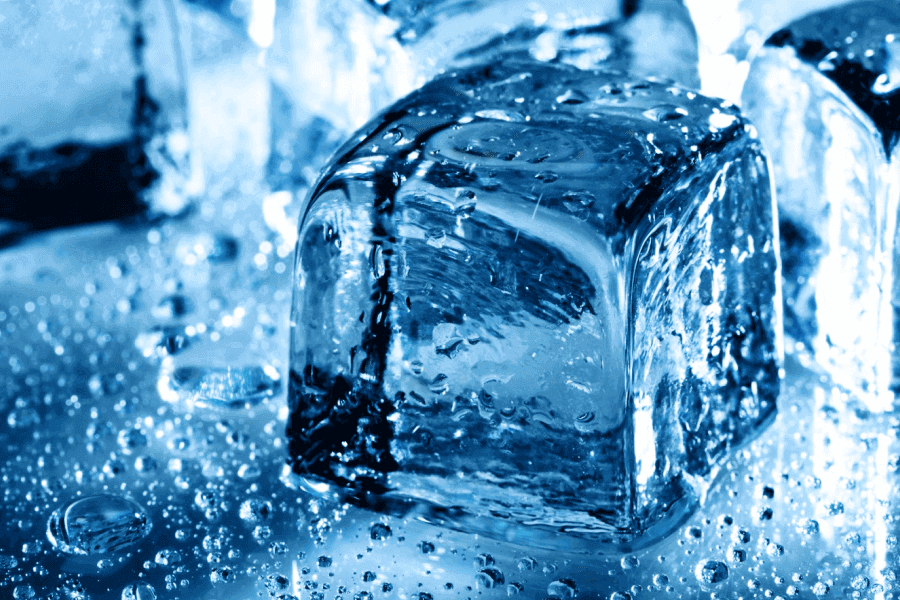ANNIE:
OK, Jack. Before we plan our presentation about refrigeration, let’s discuss what we’ve discovered so far.
JACK:
Fine, Annie. Though I have to admit I haven’t done much research yet.
ANNIE:
Nor me. But I found an interesting article about icehouses. I have seen some 18th- and 19th-century ones here in the UK, so I knew they were often built in a shady area or underground, close to lakes that might freeze in the winter.
ANNIE:
Then blocks of ice could be cut and stored in the icehouse. But I didn’t realise that insulating the blocks with straw or sawdust meant they didn’t melt for months.The ancient Romans had refrigeration, too.
JACK:
I didn’t know that.
ANNIE:
Yes, pits were dug in the ground, and snow was imported from the mountains – even though they were at quite a distance. The snow was stored in the pits. Ice formed at the bottom of it.
ANNIE:
Both the ice and the snow were then sold. The ice cost more than the snow and my guess is that only the wealthy members of society could afford it.
JACK:
I wouldn’t be surprised. I also came across an article about modern domestic fridges. Several different technologies are used, but they were too complex for me to understand.
ANNIE:
You have to wonder what happens when people get rid of old ones.
JACK:
You mean because the gases in them are harmful for the environment?
ANNIE:
Exactly. At least these are now plenty of organisations that will recycle most of the components safety, but of course some people just dump old fridges in the countryside.
JACK:
It’s hard to see how they can be stopped unfortunately. In the UK we get rid of three million a year altogether!
ANNIE:
That sounds a lot, especially because fridges hardly ever break down.
JACK:
That’s right. In this country we keep domestic fridges for 11 years on average, and a lot last for 20 or more. So if you divide the cost by the number of years you can use a fridge, they’re not expensive, compared with some household appliances.
ANNIE:
True. I suppose manufactures encourage people to spend more by making them different colours and designs. I’m sure when my parents bought their first fridge they had hardly any choice!
JACK:
Yes, there’s been quite a change.
JACK:
Right, let’s make a list of topics to cover in our presentation, and decide who’s going to do more research on them. Then later, we can get together and plan the next step.
ANNIE:
OK. How about starting with how useful refrigeration is, and the range of goods that are refrigerated nowadays? Because of course it’s not just food and drinks.
JACK:
No, I suppose flowers and medicines are refrigerated, too.
ANNIE:
And computers. I could do that , unless you particularly want to.
JACK:
No, that’s fine by me. What about the effects of refrigeration on people’s health?
JACK:
After all, some of the chemicals used in the 19th century were pretty harmful, but there have been lots of benefits too, like always have access to fresh food. Do you fancy dealing with that?
ANNIE:
I’m no terribly keen, to be honest.
JACK:
Nor me. My mind just goes blank when I read anything about chemicals.
ANNIE:
Oh, all right then, I’ll do you a favour. But you own me, Jack. OK. What about the effects on food producers, like farmers in poorer countries being able to export their produce to developed countries? Something for you, maybe?
JACK:
I don’t mind. It should be quite interesting.
ANNIE:
I think we should also look at how refrigeration has helped whole cities – like Las Vegas, which couldn’t exist without refrigeration because it’s in the middle of a desert.
JACK:
Right. I had a quick look at an economics book in the library that’s got a chapter about this sort of thing. I could give you the title, if you want to do this section.
ANNIE:
Not particularly, to be honest. I find economics books pretty heavy going, as a rule.
JACK:
OK, leave it to me, then.
ANNIE:
Thanks. Then there’s transport, and the difference that refrigerated trucks have made. I wouldn’t mind having a go at that.
JACK:
Don’t forget trains, too. I read something about milk and butter being transported in refrigerated railroad cars in the USA, right back in the 1840s.
ANNIE:
I hadn’t thought of trains. Thanks.
JACK:
Shall we have a separate section on domestic fridges? After all, they’re something everyone’s familiar with.
ANNIE:
What about splitting it into two? You could investigate 19th- and 20th-century fridges, and I’ll concentrate on what’s available these days, and how manufacturers differentiate their products from those of their competitors.
JACK:
OK, that’d suit me.
 Sau khi nghe "But I found an interesting article about icehouses" là biết đáp án chuẩn bị vào.
Sau khi nghe "But I found an interesting article about icehouses" là biết đáp án chuẩn bị vào. Nhiều bạn nghe "Ice seen some 18th- and 19th-century ones here in the UK, so I knew they were often built in a shady area or underground, close to lakes that might freeze in the winter" thì chọn đáp án nói về địa điểm của ngôi nhà băng C (where they were located).
Nhiều bạn nghe "Ice seen some 18th- and 19th-century ones here in the UK, so I knew they were often built in a shady area or underground, close to lakes that might freeze in the winter" thì chọn đáp án nói về địa điểm của ngôi nhà băng C (where they were located). Sau đó nghe "I didn’t realise that insulating the blocks with straw or sawdust meant they didn’t melt for months"
Sau đó nghe "I didn’t realise that insulating the blocks with straw or sawdust meant they didn’t melt for months" 


